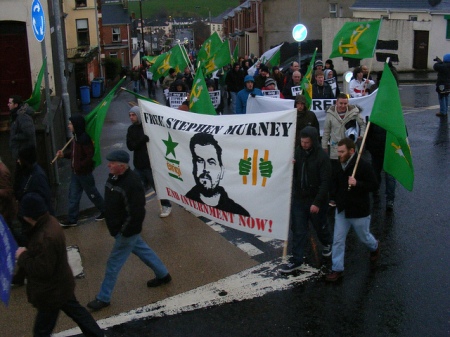Born in bradford
by Kenan Malik
by Kenan Malik
It was February 1989. I was in Bradford, a few weeks after the demonstration on which a copy of Salman Rushdie's The Satanic Verses had been burnt. I had gone there to interview Sher Azam, president of the Bradford Council of Mosques, and the man who had torched the book. Waiting in the drab building that housed the Bradford Council of Mosques, I heard a familiar voice.
'Hello Kenan, what are you doing here?'
It was Hassan, a friend from London, whom I had not seen for a couple of years. 'Good to see you Hassan. I'm doing some interviews about Rushdie', I said. 'What are you doing in this God-forsaken place?'
'Trying to make it less God forsaken', said Hassan. 'I've been up here a few months, helping in the campaign to silence the blasphemer.'
'You what?'
'No need to look so shocked. I've had it with the white left. I'd lost my sense of who I am and where I came from. So I came back to Bradford to rediscover it. We need to defend our dignity as Muslims, to defend our values and beliefs, and not allow anyone - racist or Rushdie - to trample over them.'
I was astonished. The Hassan I knew in London had been a member of the Socialist Workers party (as I had been for a while). Apart from Trotskyism his other indulgences were sex, Southern Comfort and watching Arsenal. We had marched together, chucked bricks together at the National Front, been arrested together. I had never detected a religious bone in his body. But here he was in Bradford, an errand boy to the mullahs, inspired by book-burners.
'Hello Kenan, what are you doing here?'
It was Hassan, a friend from London, whom I had not seen for a couple of years. 'Good to see you Hassan. I'm doing some interviews about Rushdie', I said. 'What are you doing in this God-forsaken place?'
'Trying to make it less God forsaken', said Hassan. 'I've been up here a few months, helping in the campaign to silence the blasphemer.'
'You what?'
'No need to look so shocked. I've had it with the white left. I'd lost my sense of who I am and where I came from. So I came back to Bradford to rediscover it. We need to defend our dignity as Muslims, to defend our values and beliefs, and not allow anyone - racist or Rushdie - to trample over them.'
I was astonished. The Hassan I knew in London had been a member of the Socialist Workers party (as I had been for a while). Apart from Trotskyism his other indulgences were sex, Southern Comfort and watching Arsenal. We had marched together, chucked bricks together at the National Front, been arrested together. I had never detected a religious bone in his body. But here he was in Bradford, an errand boy to the mullahs, inspired by book-burners.


















